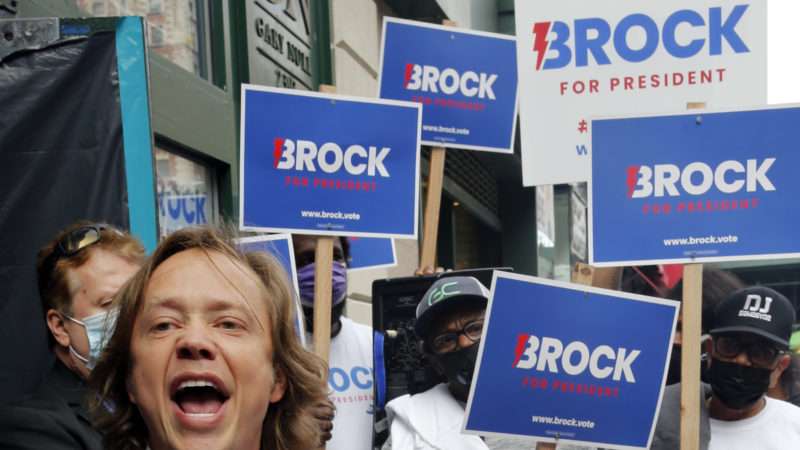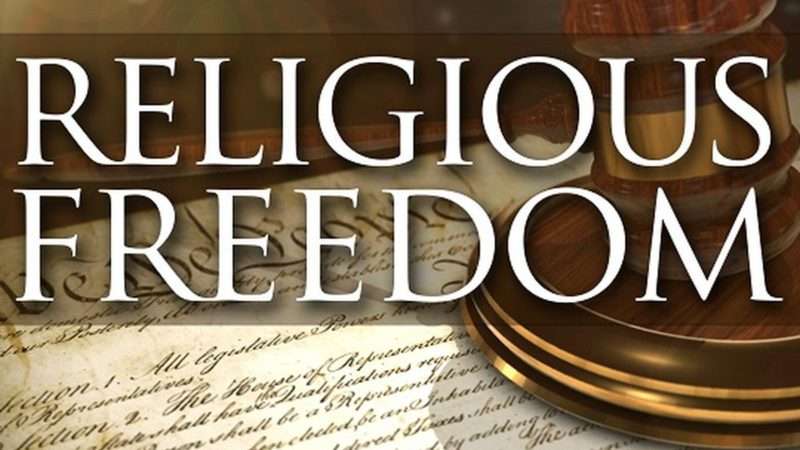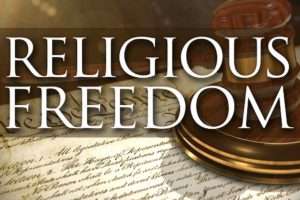Odds are you’ve heard about the nontraditional presidential candidacy of a certain Kanye West. Chances are decent, too, that you may recall the late-breaking run last time around by independent ex-CIA agent Evan McMullin.
But what if I told you that there was a 2020 candidate on more ballots than either the rapper or the Mormon, who also happened to be a fiscally hawkish cryptocurrency entrepreneur whose policy page begins with “Re-legalizing cannabis” and ends with “Your body is yours“?
Meet Brock Pierce, one of the more unusual characters to ever make it on the presidential ballot of 16 states. Pierce in his four decades on the planet has been a child actor (The Mighty Ducks), teenaged dot-com cautionary tale (at the notorious Digital Entertainment Network), online gaming pioneer, and founder of the cryptocurrency Tether. Controversy has followed him at every step, including during his 17 weeks as White House aspirant. (See this July interview with Forbes for Pierce’s responses to several of the accusations.)
“I obviously identify with and resonate with and connect with my libertarian brothers and sisters on so many levels,” Pierce told me in a phone interview Saturday. And yet, like Unity 2020‘s Bret Weinstein (with whom Pierce says he’s had several conversations), the independent believes that our current political crisis is grave enough (“we’re probably going to have another wave of riots, potentially civil war, economic sort of carnage,” he says) that all pre-existing third parties, as well as millions of disgruntled Democrats and Republicans, should assemble into a cross-partisan movement based more on values and integrity than tribal loyalty and narrow ideology.
Pierce, to be sure, also favors policies libertarians might find less congenial, such as a Universal Earned Income, and re-writing Section 230 of the Communications Decency Act.
Regardless, he vows, this is only the beginning: “I think by November 5th, I’m going to announce that I’ve already got 35 to 40 states [ballot access] already done” for 2024, he says. This may be the first time you’ve heard of Brock Pierce, but he swears it won’t be the last.
The following is an edited version of our conversation.
—
Reason: Why the hell are you running for president, Brock Pierce?
Pierce: I can summarize it in one word: Love.
Reason: Wow.
Pierce: Love for this country. Love for the American people at a time where we need love and unity. These United States feel very much like the divided states right now. We’re divided politically, economically, racially. We face very real existential threats environmentally, technologically, arguably pandemically. Conflicts potentially with other nation-states. We have to find a path to unity, we need visionary leadership that has their finger on the pulse regarding things like technology, fiscal policy, the list goes on.
Reason: You joined us in July, right? Why so kind of late in the scheme of things, or what was…the triggering mechanism that caused you to jump in in July, as opposed to July of the previous year?
Pierce: Well, I’m an independent candidate, and so July 4th is the day that I announced. An auspicious day for an independent candidate!
I turn 40 in two weeks, and so I am laying the foundation and the groundwork for a presidential run in 2024. I’ll have been running for essentially four and a half years.
Reason: I see. So look, I write for a libertarian magazine, we’re really disproportionately into stuff like blockchains, like ending the war on drugs, legalizing marijuana, balancing the budget. You’ve got all of those things checked off, and in fact, they are prominent in your emphases. Why not take a run at the Libertarian Party, which actually has ballot access in 50 states?
Pierce: I obviously identify with and resonate with and connect with my libertarian brothers and sisters on so many levels. The thing that I think needs to happen though is, we have to find a way of uniting the third parties. The last third party candidate to be elected president was Abraham Lincoln. And Abraham Lincoln was able to unite the third parties by creating a government of rivals, you know, divided we fall, united we stand. Clearly we need to bring on the libertarian community. We gotta like Voltron with all of these groups, because we are bigger, the independents are bigger, than the Republicans, the independents are bigger than the Democrats. But we’re consistently divided. And so I clearly intend to speak to and connect with libertarians.
In terms of 50-state ballot access, I’ve got that solved already. I was able to do 16 states, and could have done 25 at least, and that’s starting on July 4th. It took the Libertarian Party probably a couple of decades to figure out how to do it; I’ve got it figured out in six months. It’s not that hard.
Reason: What are the big priorities, or things that you think need to be changed, that your independent candidacy or presidency is uniquely poised to address or affect?
Pierce: Well, I think part of it is how we measure and define our success. What is our aim as a nation? If you don’t have an aim or a vision, you’re going to wander aimlessly. And so, how do we create a unified vision as a country?
One of the things I like to talk about is, the way that we’ve been measuring our success historically as a nation has been by growth, or GDP. The problem with growth is it assumes that we have infinite resources, which we’ve known for quite a while we don’t have. It also doesn’t differentiate between positive and negative growth, and we also have a lot of crony capitalism, right? And so I think how we measure and define our success is a conversation that needs to be had.
The founders of this country had a wonderful intention for us, which was “Life, liberty, and the pursuit of happiness.” And so here’s an idea that I propose: What if we started to measure our success by life expectancy? Did you know that life expectancy in this country has been in decline the last few years despite all the advancements in medicine, science, and technology? What if we started to measure our success by life? Policy and everything would start to change, and we’d start to have real wealth, which is our individual health.
What if we started to define and measure our success as a nation by our liberty? We are supposed to be the Land of the Free, after all. But we have more people in prison than any other country in the world, in total and per capita. It doesn’t sound like liberty is the goal. I believe in law and order; I think it’s a foundation of a well-functioning society. But it’s meant to protect and serve. Our police departments are arresting more people to get a bigger budget to hire more cops to arrest more people to get a bigger budget to hire….It’s growth, it’s just infinite growth, it’s blind growth, it’s not mindful growth, it’s not thoughtful growth. And so, what if we started to measure our success by liberty?
And then, of course, happiness. There’s already countries around the world that are measuring their success by happiness. So how do we upgrade the operating system of the United States? How do we define and measure our success? Because growth is not going to work anymore. So that’s just one concept.
Another thing is, let’s talk about the U.S. dollar. The U.S. dollar is the foundation of this nation, the foundation of this nation’s economy. If something negative were to happen to the dollar, it would have very material adverse effects on all of our lives, all of our businesses, and all of our institutions. And it is at risk because of our national debt, because of our fiscal policy. Did you know that 22 percent of all dollars in existence were created this year?
Reason: Wow, I did not.
Pierce: I mean, that’s a frightening number, isn’t it? [The dollar] is at risk because of the things that we’re doing here domestically that are eroding faith, trust, and confidence in it. And it’s also at risk because of external threats.
One of the things I did is I created the U.S. digital dollar in 2014, which is doing $10 trillion a year in transactional volume. Governments around the world are using that framework to enhance their currency with technology. The Chinese government is years ahead of everyone else with their new Chinese digital Wuan. We don’t even talk about fiscal policy in our election. I mean, these things matter, and they’re not being discussed.
Technology itself beyond just the dollar is also…We know technology is changing the world, and it’s doing so at an accelerated pace. Our technology leaders [just] testified before our elected officials, I mean, the questions they’re asking are embarrassing. At a time where the impact of technology is very real and technology is a tool, it is not good or bad, it’s how we use it will determine the impact it has. I mean, look at The Social Dilemma on Netflix, and how technology is impacting our democracy. The potential risks to free speech and the censorship that’s starting to happen. Which is not new, it just is becoming visible, and the whole country at least…is starting to see it.
Now with artificial intelligence, automation, robotics—I mean, the landscape of work is going to be changing rapidly. There are three and a half million truck drivers in this country, then add [the drivers for] Uber, Lyft, and taxis. This is not science fiction: Driverless cars, driverless trucks, they’re on the road already over the course of the next four to eight years. Then we’re talking about tens of millions of jobs that are going to disappear because they’ve been replaced by technology. We need leadership, visionary leadership with the foresight to navigate the road ahead with their finger on the pulse.
I continue back to the war on drugs: Yes, we need to end that. Let’s re-legalize nature. When did we outlaw nature to begin with and why? Oh yeah, it was for plastic, cotton, and paper. So, we outlawed nature because our new products couldn’t compete with hemp. I think it’s important to do that. Let’s end this war on drugs, let’s end locking people up in prison for victimless crimes, for cannabis-related things, and so forth. The answer for drug addiction isn’t locking people up in cages at great expense to the American people. This is a social issue, a mental health issue. Let’s actually help people help themselves to live a more prosperous life.
Reason: Silicon Valley companies [are] being hauled in front of Congress. It’s now kind of a bipartisan agreement, which is usually a scary moment, to rewrite Section 230 of the Communications Decency Act. Where do you stand on that narrow question of, should that be rewritten in some way to affect the behavior of the Silicon Valley giants?
Pierce: I think the answer is yes. You’re either a platform or a publisher. As a platform, you don’t have liability because you are permitting free speech. The moment you choose to be a publisher and censor, then you become liable. You can’t have your cake and eat it, too, and define what you are. If you want to be a platform, be a platform; if you want to be a publisher, be a publisher. These are companies that have that choice. You just can’t have both.
Reason: We have a comments section. Are we liable for every damn fool thing our commenters say, under your vision?
Pierce: Now, yeah, we’re getting further narrow…I mean, this is back to publisher or platform.
Reason: I mean, we’re a publisher that allows people—
Pierce: That’s tier two of the question. Tier one is, are you censoring speech as a social media platform? Or as a publisher, do you have comments sections? I think that’s a secondary issue. I think the primary issue is as the platforms, are they censoring major speech? When we’re getting into the nitty-gritty details of your comments section, I think that’s a lesser issue, but I see the point that you’re making.
Reason: It’s just that the platform-publisher distinction can be a gray area and when you increase the legal—
Pierce: Agreed, and I think they’re two very different issues. One is the comment sections and what your users are saying. Another is literally manipulating what an entire world, the nation, sees. I don’t know if you saw the leaked Google video where you had the senior Google executives saying that, “We’re just going to make it so that conservative opinions are not seen by anyone.” I mean, they’re very different issues but they fall into the same vein.
Reason: Talking about the truckers who are going to be replaced by automated driving…this gets into some Andrew Yangi-sm. He had the Universal Basic Income idea. You have the Universal Earned Income. Talk about that a little bit.
Pierce: So if we have tens of millions of jobs that are going to be disappearing because of technology—which doesn’t need to be a bad thing; I get up and I live to work, I live to serve. But a lot of people work to live or to survive….We can’t have tens of millions of people desperate. If tens of millions of people are desperate to survive, the pitchforks come out, so we have to find a solution to give people the necessary safety net to become re-skilled, to retrain, to find other ways to be productive members of society.
I think Universal Earned Income is the answer, similar to Universal Basic Income, except for there’s an earned component. How do you earn it? Is it by voting? Is it by being an American citizen? Is it you make your first dollar and then you just proceed the rest? These are the questions in the conversation that I wish to continue to have with all those parties that are interested in doing it.
Reason: So you are talking about unity, and getting people on the same page. Do you think in these times when we have a lot of polarized, tribal rhetorical warfare with one another, in which, for instance, Hollywood and Silicon Valley are seen as being definitely on one side of this issue—that’s kind of where you come from! Are you the person to convince people who are skeptical of those major centers of power to rally around an independent flag?
Pierce: I hope so. I mean, my message resonates with people on the far left and the far right, because I think I’m like a majority of Americans: people that want to live and let live, to take responsibility for our actions. I think the majority of us are in the middle. We’ve just been divided through these very polarized two limited choices that we have. You’re like, “Well, I don’t like that, I’m against that. Therefore, I’m going to vote for this.” I think as a nation, it’s less about what we’re against. We have to get out of that mindset and start to think about what we’re for. What do we stand for?
And I think that’s a big part of the problem. I mean like 70 percent of Democrats and Republicans are unhappy with their choices. So I think this country is going to stay in this perpetual loop until we start to act according to our conscience, to vote our conscience, not to vote out of fear, but to vote for what we believe in. I think that we need more choices. Hence, I’m presenting another one here now.
Reason: You started this conversation with the word “love.” On your website, one of your five major areas is “Regeneration.” Am I wrong to detect a little bit of overlap with Marianne Williamson here? There’s a spiritual component of yours that people might associate with a more kind of New Age uplift.
Pierce: You could call it “spirituality,” if that’s what resonates with you. I’m a very spiritual person. But it’s also all very logical. It’s based upon common sense, very logical sensible ideas. I’m a fan of Marianne Williamson and Andrew Yang. And if the things that I’m doing trigger in a positive way those associations, I’m glad to hear it. You’re the first person to have said that.
Reason: Speaking of weird associations, or associations regardless of what one thinks about them, according to the very well-informed website Wikipedia, you did business with Steve Bannon at one point, 12, 13 years ago.
Pierce: Steve worked for me in my mid-20s.
Reason: What is your reflection on his role in the American political conversation since?
Pierce: Well, when he worked for me, he was still an investment banker. And so, he was my deal guy that executed my financings and things of that nature. So, his foray into the political realm occurred after his tenure of working for me. It’s been interesting to see—I guess inspiring in the sense that I saw someone basically jump into politics and fairly quickly ascend all the way through the ranks almost as far as one could go. But Steve and I are obviously very different people.
Reason: Building on that, you’re running against Donald Trump and Joe Biden in the year 2020. What is your biggest criticism of each?
Pierce: I tend not to get into criticisms of others. I mean, there’s so much of that happening right now. If you turn on your television, you open up anything, it’s pretty much all negative sort of messaging towards the two major-party candidates. So I don’t really spend time on that.
I’d say that the big difference is that I’ve got a strong technology background. I’ve been on the forefront of innovation for a very long time. I’m half of Joe Biden’s age, like, exactly: I’m 39, he’s 78. And so I think that we’re going to need younger leadership over the course of this next decade. Most of our leadership historically have been in their 40s and 50s; typically, our presidents are not in their 60s, certainly not in their 70s, ever. The oldest president ever elected in U.S. history in their first term was Donald Trump at 70. This is all new territory, at a time where I think we need people that are more in touch with the present reality.
Reason: What do you worry is going to happen in the next four years regardless of who wins?
Pierce: It’s going to be a rough road. I wish I could say otherwise. The ripple effects of shutting down the U.S. economy, the impact on the American Dream, unemployment, the 22 percent more dollars—and that’s going to be a lot more over the next year. We’re in for a lot of trouble and a lot of polarization. Just the next week alone—I mean, we’re probably going to have another wave of riots, potentially civil war, economic sort of carnage.
That’s why I’m running for office. I think we’re doomed if we don’t do something different, and I’m not the type of person that just sits on the sidelines; I’m going to do everything I can to fix it. That just means delivering a message and sharing vision and ideas. I don’t care who implements it. If these things get implemented and everybody wins, that’s good enough for me.

from Latest – Reason.com https://ift.tt/2HLw8HO
via IFTTT




